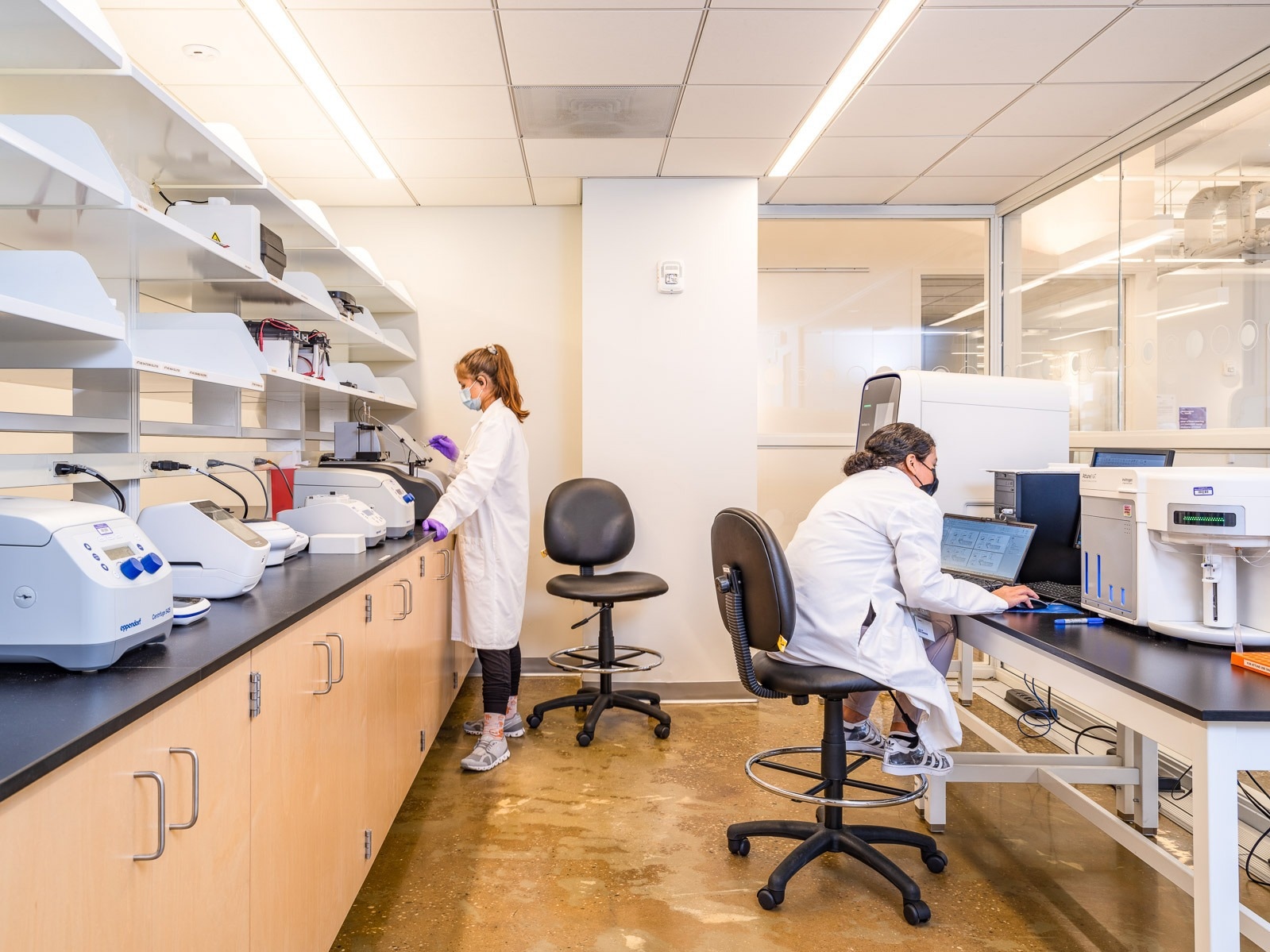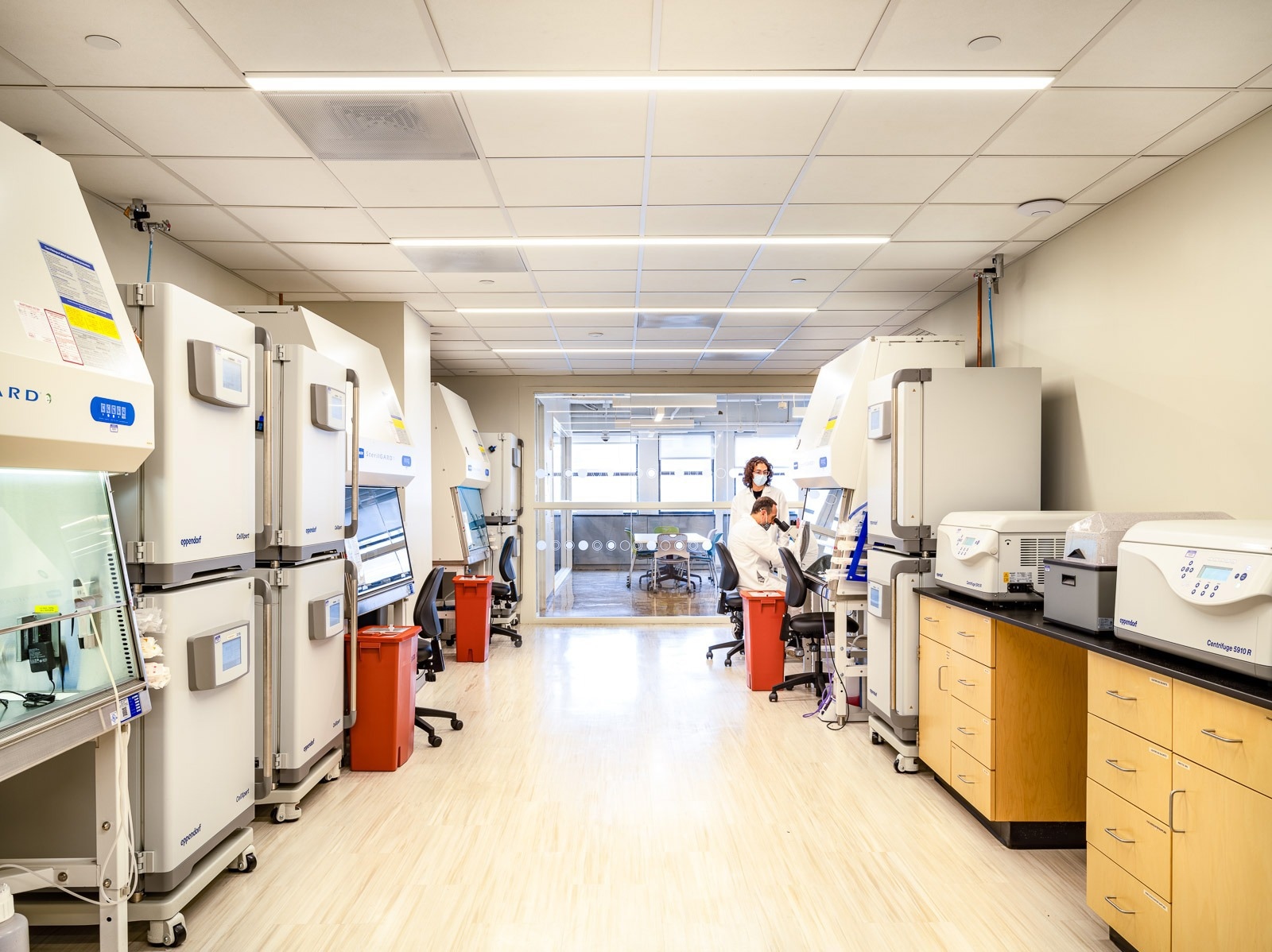My name is Glennis Mehra and I am the Director of Biolabs@NYULangone, which is an incubator in New York City, currently hosting about 40 companies in their early stage life science endeavours.
My background is in science, specifically Neurobiology and Behaviour from Columbia University, where I worked in functional genomics. This led me to join the tech ventures office at Columbia, where I helped to enhance and market innovations. I then founded a drug discovery platform for the Indian market. This experience taught me the challenges of being a first-time founder, from idea to implementation, scaling, and pivoting.
Despite some success, I had to exit the company, which led me into the commercialization of innovation. I took a two-year break and returned to the US for strategy consulting, focusing on innovation, international expansions, and acquisitions for multinationals. The pandemic brought challenges in managing international team projects, leading me to seek new opportunities.
That's when I discovered Biolabs, which resonated with my journey. I saw the potential to leverage my experience to support others in similar paths, and I eagerly joined to contribute to a field I'm passionate about.
 Open Shared Lab Space, Image Courtesy of Biolabs@NYULangone
Open Shared Lab Space, Image Courtesy of Biolabs@NYULangone
Biolabs works as an 'incubator'; could you explain what this is?
An incubator, which is different from an accelerator, hosts early-stage companies, typically after they've received their initial funding. These companies need to execute their plans efficiently in terms of capital and time. Our incubator is designed for this execution phase. We offer services, support, and access to facilities with expensive equipment. This setup enables researchers and scientists to focus on their experiments without worrying about operational burdens.
What are the benefits of early-stage companies joining an incubator?
A lot of companies who start do not consider incubators. But joining an incubator offers significant benefits for early-stage companies, akin to living in a co-op apartment where many necessities are taken care of.
In a co-op, if there's an issue like a leak, a single call to a superintendent resolves it. This contrasts with owning a house, where the owner is responsible for furnishing, outfitting appliances, and all maintenance.
In an incubator, similar to living in an apartment, many operational challenges are handled for you, allowing you to focus more on your business without the burden of managing numerous logistical details.
How does Biolabs support the companies it works with?
Our pricing model includes a membership and a fixed cost, with no extra charges for using various types of equipment, which is common in incubators. Our goal is to help these companies iterate their projects to perfection, obtain proof of concept data, reach their next milestones, increase their valuation, and de-risk from an investor's perspective. We also ensure that our founders are responsible with the capital they've received.
Beyond execution, our incubator fosters a community. This community, one of our three value verticals, promotes connectivity, collaborations, and idea exchanges, enhancing companies' growth through shared experiences. The third vertical is our network and programming, which is unique to each incubator.
We don't invest in companies or require strategic relationships, focusing instead on execution and success strategies, including fostering investment relationships. In contrast, accelerators primarily emphasize programming rather than execution.
What are some of the equipment that resident companies can access when joining Biolabs?
Biolabs offers a wide range of equipment to support life science workflows, particularly in molecular biology, cell biology, and biochemistry. This includes resources for biopharma, molecular diagnostics, synthetic biology, and consumer product development. However, it's less equipped for heavy chemistry areas like medicinal and analytical chemistry.
Key resources available at Biolabs include high-value equipment like flow cytometers, cell sorters, liquid handlers, mass spectrometers, and LCMS. These tools are crucial for companies, as owning and maintaining such equipment independently would be highly costly and time-consuming.
Biolabs@NYULangone is headquartered in New York, a rising power in the life science scene. How does it feel to be in this exciting location and why is NY a great hub for the life sciences?
As a native New Yorker and Columbia alum, I've witnessed the growth of life sciences from its academic roots in the city. New York boasts an unparalleled density of excellence in life sciences, with institutions like Columbia, NYU, Sinai, Memorial Sloan Kettering, Cornell, and many hospitals contributing to a rich innovation ecosystem. This isn't limited to therapeutics and medicine but extends to fields like synthetic biology, fashion, and agriculture.
While New York leads in innovation creation, it lags in translating these into market opportunities and new entities, which is an area I find exciting. The early-stage life science community in New York, though smaller compared to the Bay Area or Boston-Cambridge, is uniquely positioned to make significant impacts daily, thanks to the city's scale and the vast intellectual property available.
New York's distinct advantage lies in its very essence – it's New York. Companies here are often founded by those who choose to be in this vibrant city, reflecting a preference for the unique environment and opportunities it offers.
 Tissue Culture Room, Image Courtesy of Biolabs@NYULangone
Tissue Culture Room, Image Courtesy of Biolabs@NYULangone
Looking broadly over the industrial sector, what are some of the challenges in commercializing innovation?
The main challenges in commercializing innovation include the constant need for capital, which is even more pressing in expensive cities like New York. This issue is recognized but still needs to be stressed due to its critical importance.
Another key challenge is the lack of business mentorship for scientists. Many scientists driving innovation lack business backgrounds. Despite their intelligence and capability in learning, business acumen is often more art than science, necessitating mentorship or business-savvy co-founders.
Additionally, there's a need for structured resource networks. Founders often rely on chance encounters for networking and support. Establishing central repositories or groups for founders, especially those outside incubators or accelerators, to share ideas and resources could greatly aid in the commercialization process.
Could you discuss use cases of any particularly successful companies that you've partnered with over time?
Our site, which opened in late 2019, faced early challenges due to the pandemic but started seeing success by 2021. One notable example is Immunai, which achieved unicorn status and raised $200 million. Starting with just a few founders, they scaled to dozens of employees within two years.
Other successful companies include C16 Biosciences and Helaina, biosynthetic or biomaterial companies created in our incubator. Additionally, Ochre Bio is thriving, demonstrating the ability to accelerate and execute work efficiently.
A key measure of success in life science is survival, as over 90% of startups fail in the early years. Of the 60+ companies we hosted, only about four have failed, which highlights the effectiveness of our curation and platform. Our flexible infrastructure allows companies to adjust their resources and space according to their needs, supporting their growth and adaptation.
What does Biolabs hope to achieve in the next few years? Are there any milestones that the team is working towards?
Biolabs aims to guide companies through the current macroeconomic challenges, ensuring continued support from government, institutions, stakeholders, and investors. A key goal is to improve operational efficiencies and help companies reduce costs, leveraging the discipline fostered by current market conditions to create more consistent and stable practices for the future.
The organization believes this challenging period is cultivating better founders, which will contribute to a stronger ecosystem. Biolabs is focused on providing the necessary resources and networks to capitalize on this opportunity.
About Dr. Glennis Mehra
 Dr. Mehra is the Director of Biolabs@NYULangone. She is an accomplished serial entrepreneur, business consultant, and angel investor with proven success in a variety of geographies and industries. Her experience spans teaching, biotechnology (biotech), technology transfer, international business operations, research and development, functional genomics, and consumer product development and insights.
Dr. Mehra is the Director of Biolabs@NYULangone. She is an accomplished serial entrepreneur, business consultant, and angel investor with proven success in a variety of geographies and industries. Her experience spans teaching, biotechnology (biotech), technology transfer, international business operations, research and development, functional genomics, and consumer product development and insights.
Throughout her career, she has gravitated toward emerging technologies and businesses. As one of the early adopters of functional genomic tools during doctoral work at Columbia University, she performed one of the first high-content gene expression profiles and analysis of damaged and regenerating epithelium.
After earning her Ph.D. in Neurobiology & Behavior from Columbia University, she joined the university's technology ventures group, where she created IP strategies and valuation systems and helped commercialize technologies from the biology and chemistry departments. From there, she co-founded and ran two successful startups in India before partnering with SPRIM Strategy and Innovation Consulting to provide a startup perspective to multinational/Fortune 500 companies.